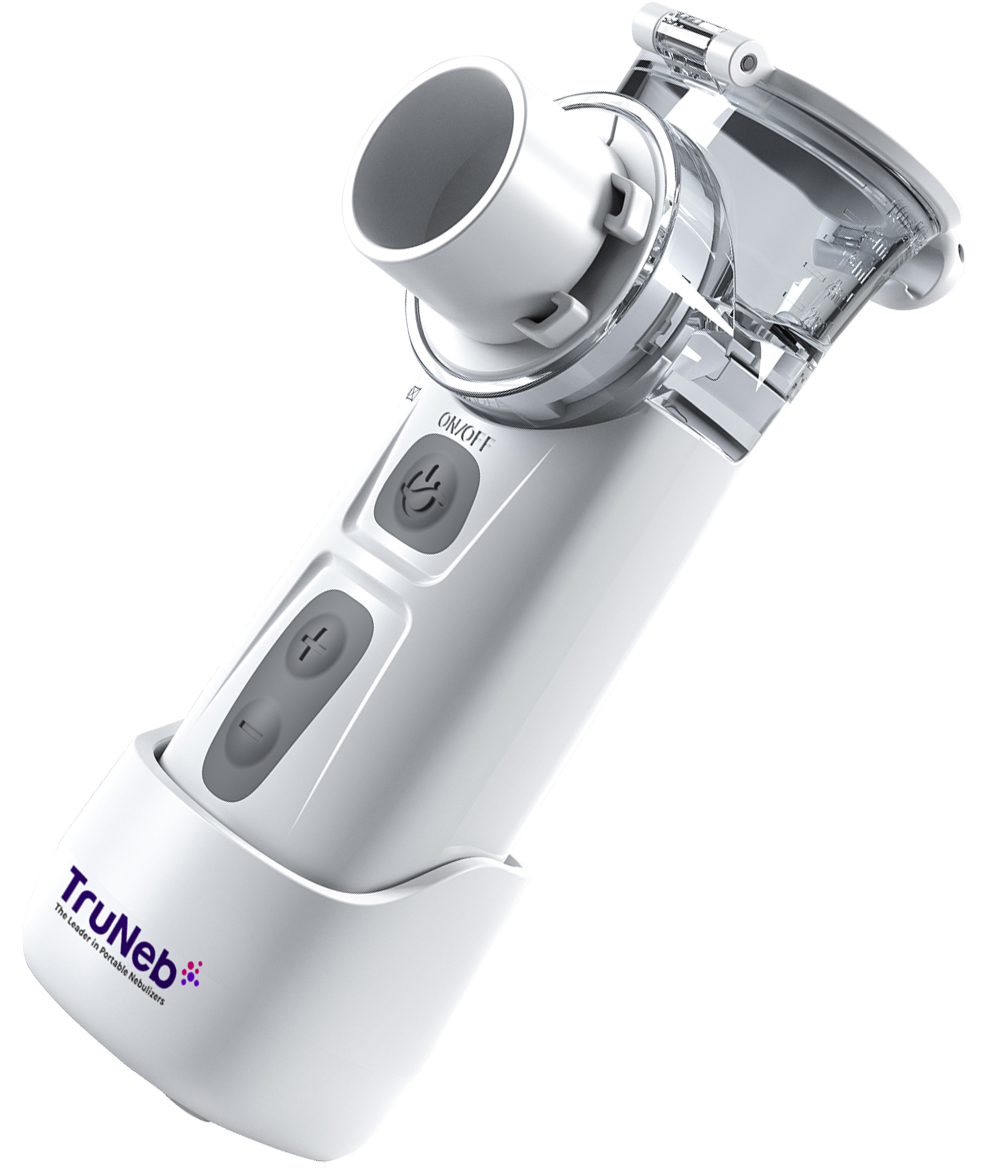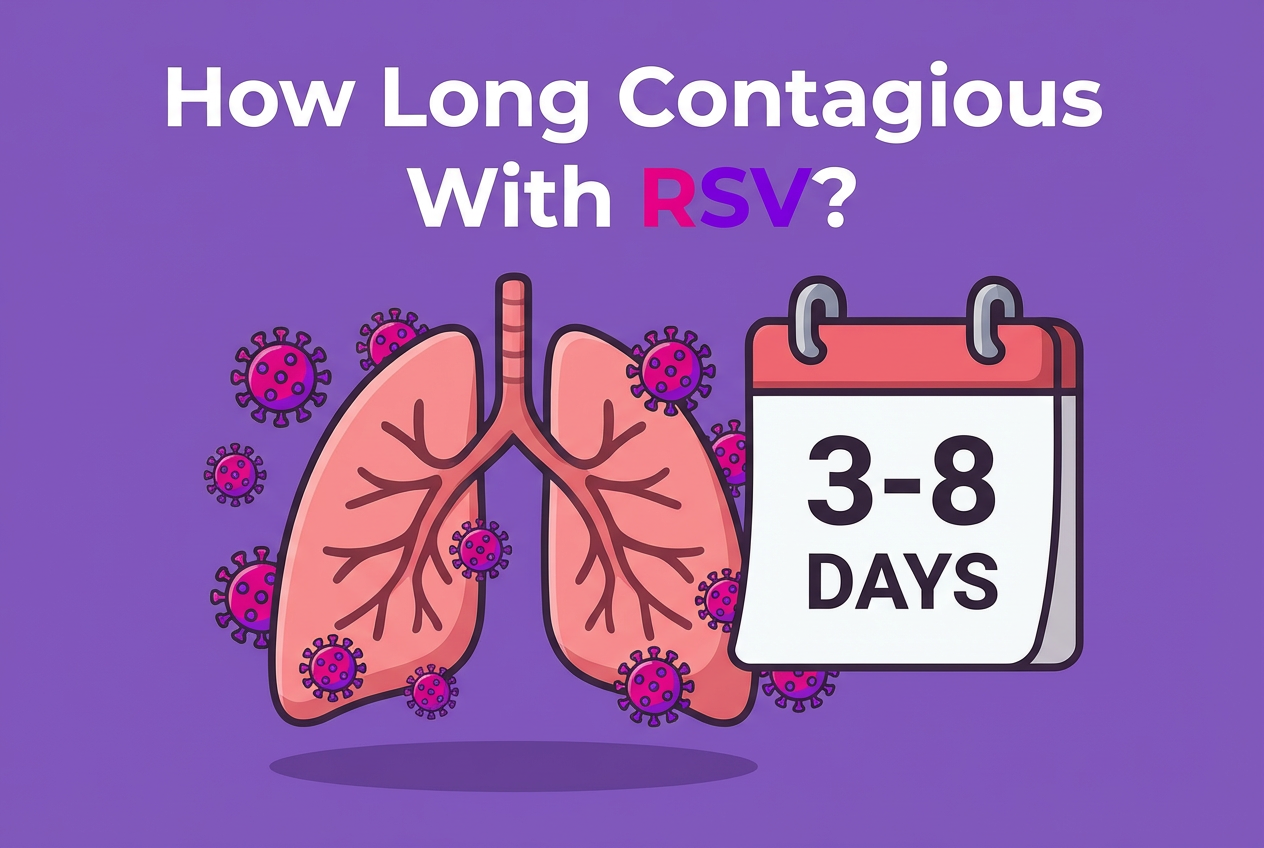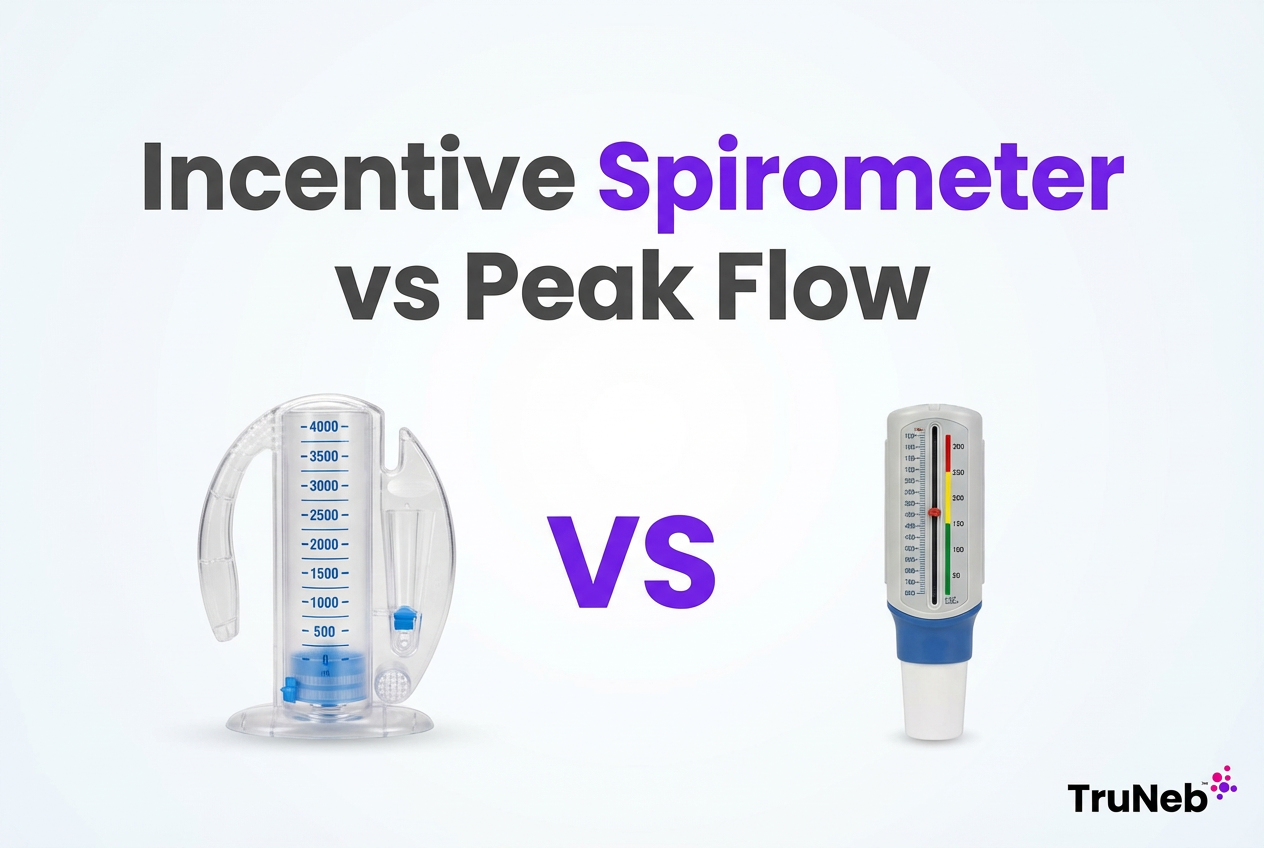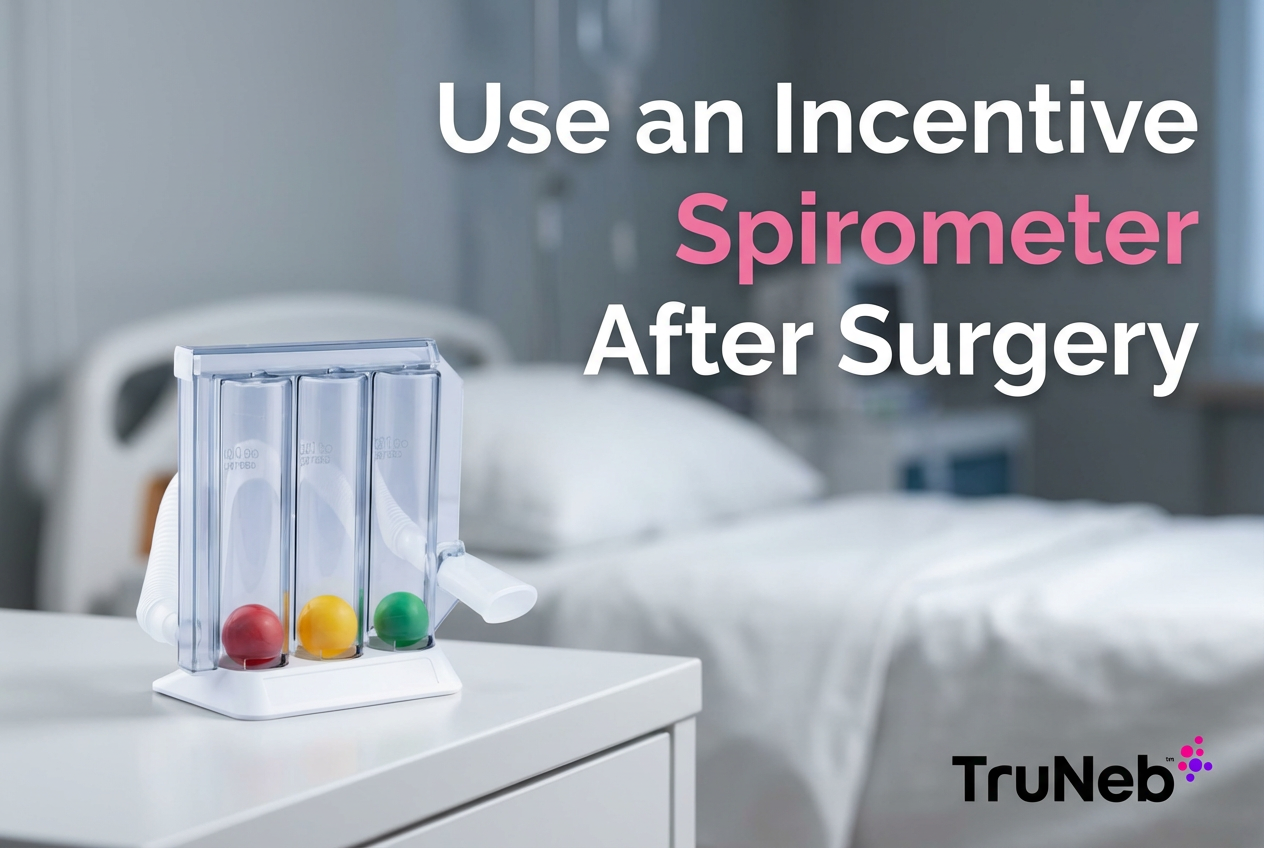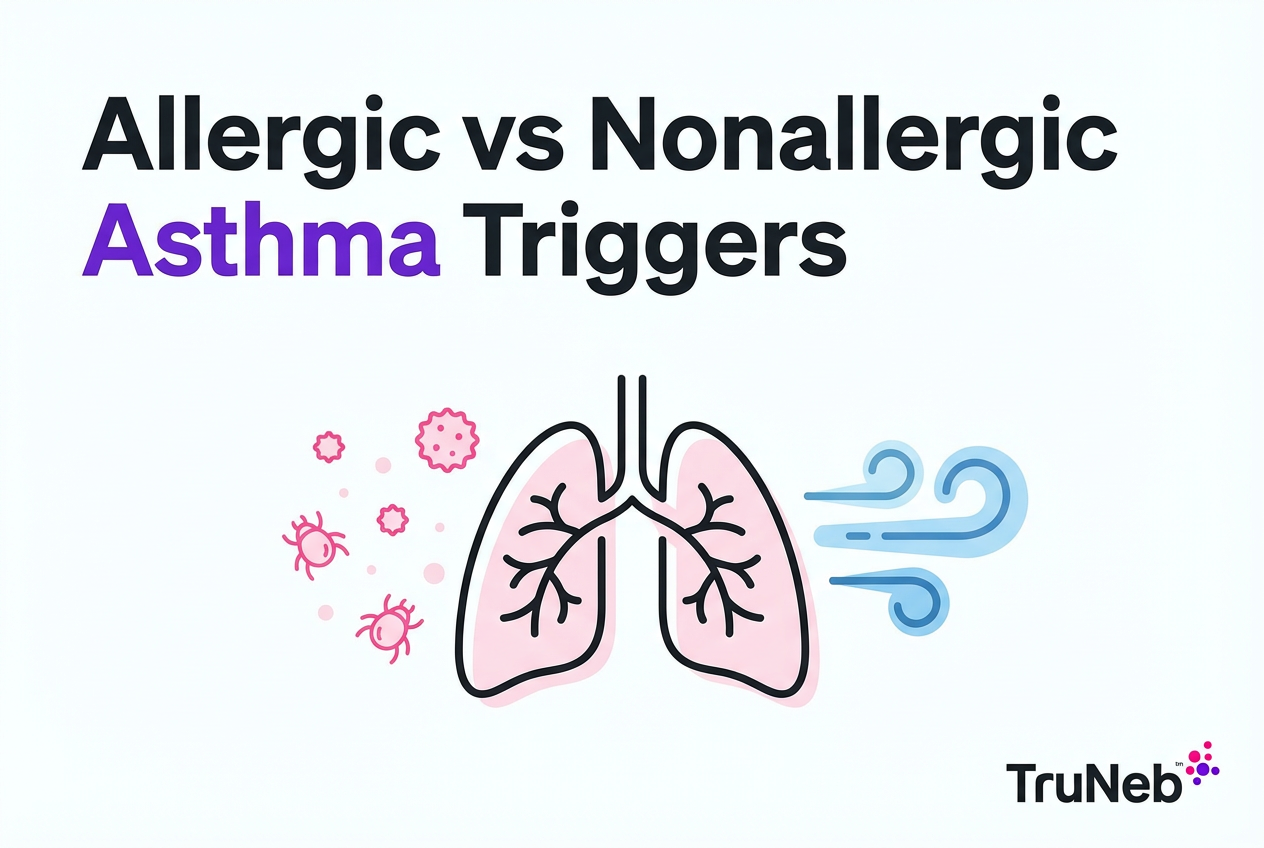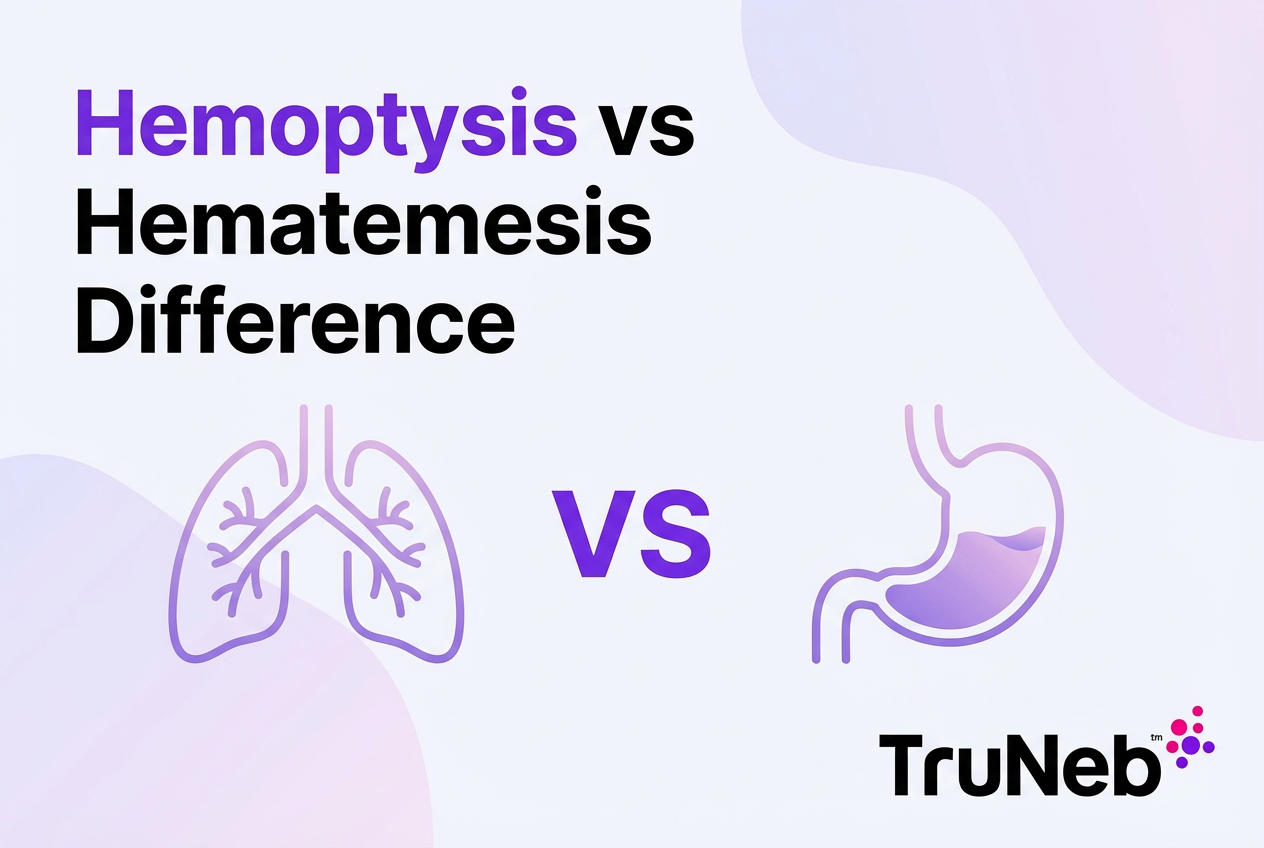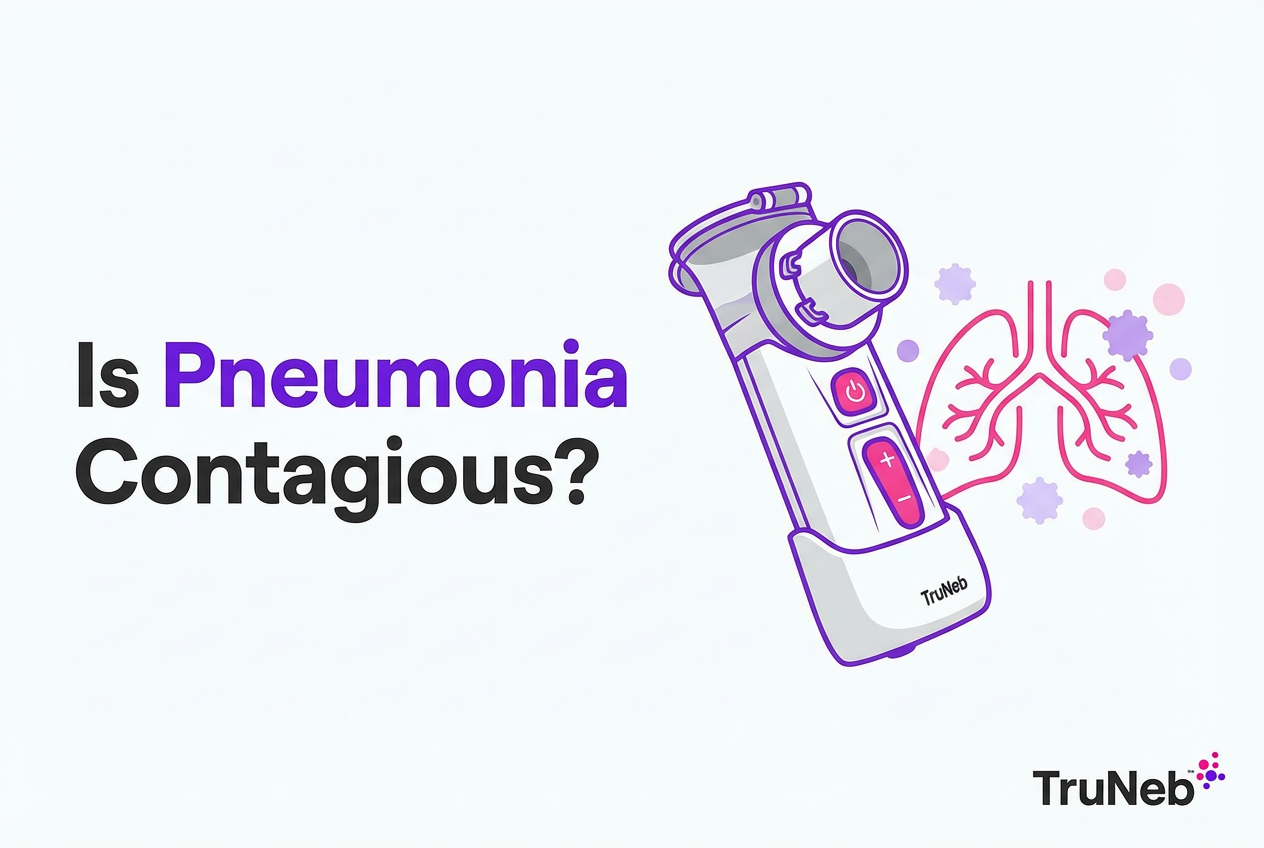On this page
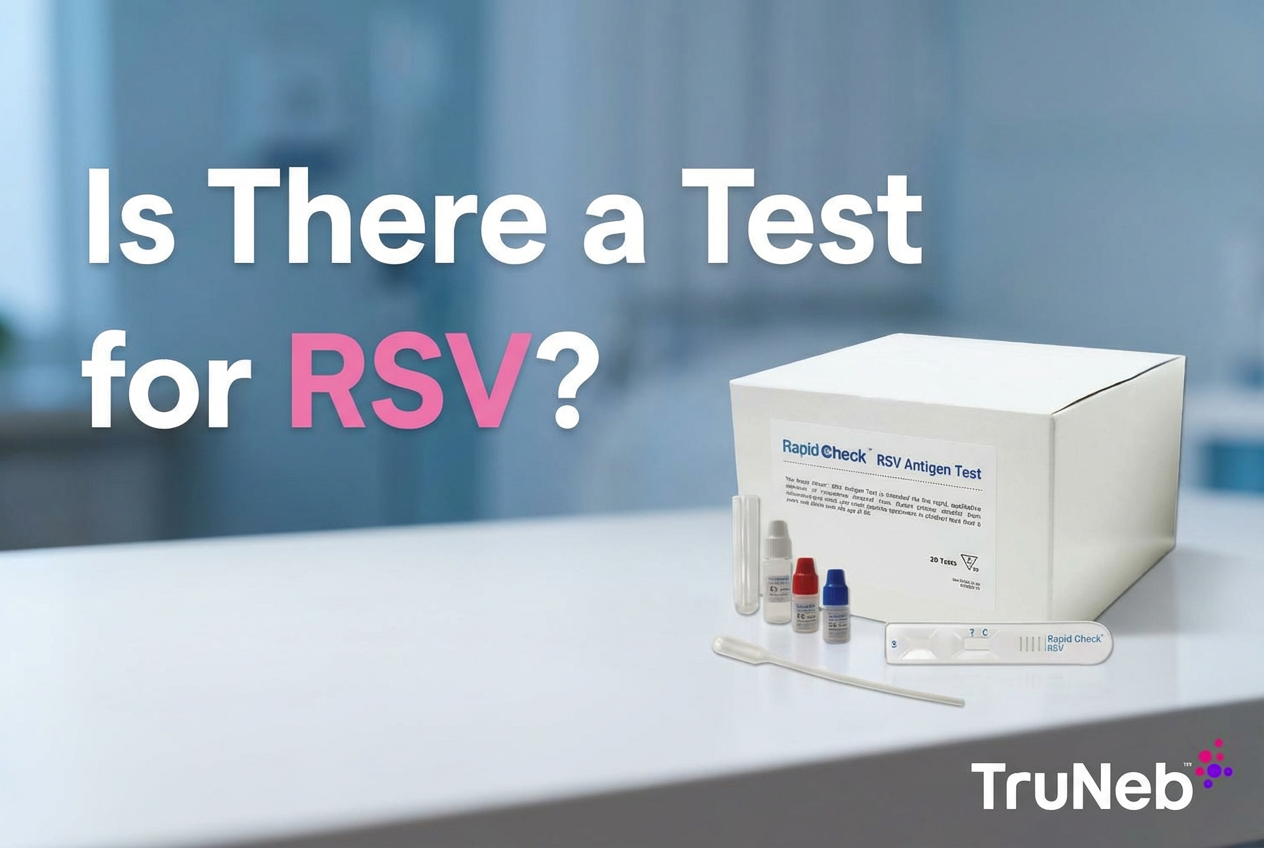
Is There a Test for RSV?
Yes, there is. Doctors can test for respiratory syncytial virus (RSV) with a quick sample from the nose, usually using a small swab.
RSV is a common virus that causes cold-like symptoms, especially in babies, toddlers, older adults, and people with weak immune systems. An RSV test looks for the virus in mucus from your nose so your doctor can tell if RSV is causing the illness or if something else, like flu or COVID-19, is to blame. Doctors are more likely to use RSV tests for babies, older adults, or anyone with more serious breathing problems.
Most mild RSV infections get better with rest and fluids, so not everyone needs a test. But for high-risk patients or more serious breathing problems, testing can give clear answers and help guide safer care.
Understanding RSV Testing (What It Is and Why It Matters)
An RSV test is a type of medical lab test that looks for respiratory syncytial virus in a sample from your nose or throat. An RSV diagnostic test checks that sample to see whether RSV is present. It tells your doctor whether RSV is causing the illness.
Doctors use RSV tests to:
- confirm that RSV is the cause of cough, fever, or breathing trouble
- tell RSV apart from other infections, like influenza or COVID-19
- decide who might need closer monitoring, oxygen, or hospital care
- avoid unnecessary treatments, such as antibiotics, when the illness is clearly viral
🩺
- Fast facts:
- RSV tests usually use a nasal or throat swab sample collected in a clinic, urgent care, or hospital.
- Rapid RSV tests can give results in minutes, while PCR tests are run in a lab and are more sensitive.
- A positive RSV test confirms a viral infection, so antibiotics are usually not needed unless there is another bacterial problem.
Knowing for sure that an illness is RSV usually doesn't change the basics of treatment, which are focused on comfort and breathing support. It does, however, give you a name for what is going on and helps your doctor plan the safest next steps.
When Is RSV Testing Recommended?
Doctors don't test every runny nose or cough for RSV. They think about your age, symptoms, and risk factors before ordering a test.
RSV testing is more likely to be recommended when:
- a baby under 6 months has trouble breathing, poor feeding, or pauses in breathing
- a child of any age has fast breathing, chest pulling in with each breath, blue lips, or looks very unwell
- an older adult has lung disease, heart disease, or a weak immune system and develops a bad cold or chest infection during RSV season
- someone of any age needs hospital care for breathing problems or low oxygen levels
- doctors need to tell RSV apart from flu, COVID-19, or pneumonia to plan treatment or infection control in the hospital
In the hospital, doctors might also order blood tests or a chest X-ray to look for pneumonia or other complications, but those tests don't diagnose RSV itself.
For most healthy older children and adults with mild cold-like illness, doctors might diagnose RSV based on symptoms and the time of year without doing a lab test, because the result usually wouldn't change treatment. RSV testing is mainly used for babies, older adults, and people with higher risks or more severe symptoms, not for every mild cold.
Types of Tests for RSV
There is more than one way to test for RSV. All of them start with a sample from the nose, usually a nasal or nasopharyngeal swab, but they work differently and take different amounts of time.
Rapid Antigen Test
A rapid RSV antigen test looks for proteins from the virus in mucus from the nose. A nurse or doctor collects a sample with a swab or gentle suction, then runs it on a small device in the office or clinic. These are point-of-care tests, which means the sample is processed right where you're seen instead of being sent to a separate lab.
Results are usually ready in about 15 to 30 minutes, sometimes before you leave the visit. Rapid antigen tests work best in young children, who usually have a higher amount of virus in their noses. In older children and adults, these tests can miss some cases.
PCR (Molecular) Test
An RSV PCR (polymerase chain reaction) test is a molecular test that looks for RSV genetic material in the sample. The sample is usually a nasal or nasopharyngeal swab or gentle suction, just like the rapid test, but it is processed in a lab machine.
PCR tests are very sensitive and can detect even small amounts of virus. Most hospitals now use multiplex PCR panels, which can test for RSV, influenza, COVID-19, and other respiratory viruses from a single swab. Results usually come back within a few hours or by the next day, depending on the lab.
Other Tests: Viral Culture and Antibody Blood Tests
In the past, labs sometimes used viral culture, which grows the virus from the sample. This method is slow and can take several days, so it is now used mainly for research or special cases.
There is also an RSV antibody test, which is a blood test that looks for antibodies your body makes after infection. It isn't used to diagnose a new RSV infection, because antibodies take time to appear. It is mostly used in research or to check past exposure.
Quick Comparison of RSV Test Types
In general, rapid RSV tests are faster but can miss some cases, while PCR tests take longer but are more accurate.
Here’s a quick side-by-side look at common RSV test types:
| Test type | Sample | Typical result time | Where it's commonly used |
|---|---|---|---|
| Rapid antigen | Nasal or nasopharyngeal swab, or gentle suction | About 15\u001130 minutes | Clinics, urgent care, emergency rooms |
| PCR (molecular) | Nasal or nasopharyngeal swab, or gentle suction | Hours to the next day | Hospitals and labs, high-risk patients, outbreaks |
| Viral culture | Nasal swab | Several days | Research or special situations |
| Antibody blood test | Blood draw | Several days | Checking past infection or research, not new diagnosis |
Rapid antigen tests give quick answers but can miss some infections, while PCR tests are slower but more accurate for confirming RSV.
How Do Doctors Test for RSV? (Sample Collection and Procedure)
An RSV swab test is usually quick and simple and feels a lot like the nasal swab used for COVID-19 or flu testing. In practice, RSV is diagnosed by a doctor using your symptoms plus a nasal swab test.
Here's what usually happens:
- A nurse or doctor asks you to tilt your head back slightly.
- They gently place a thin swab just inside your nose or a bit deeper toward the back of the nose (a nasopharyngeal swab).
- They rotate the swab for a few seconds to collect mucus, then remove it.
- In babies and young toddlers, they might instead put a few drops of salty water in the nose and use gentle suction to pull out mucus. This is called a nasal wash or nasal aspirate.
- The sample goes to a rapid test device in the office or to a lab for PCR testing.
Sometimes doctors use an RSV nasopharyngeal swab, which goes a little deeper to the back of the nose to collect more mucus when they need a very good sample.
The swab can feel strange and might make your eyes water or trigger a sneeze, but it shouldn't be very painful and it only lasts a few seconds. No fasting or special preparation is needed.
How Long Do RSV Test Results Take?
How long you wait for RSV results depends on the type of test and where it's done.
- Rapid antigen tests are usually run right in the clinic. Results are usually ready in about 15 to 30 minutes.
- Some rapid molecular PCR machines in urgent cares and hospitals can also give results in under an hour.
- Standard PCR tests that go to a full lab usually come back the same day or within 24 hours, depending on how busy the lab is and when the sample was collected.
- Viral culture and special research tests can take several days, but these aren't used for routine care.
If your sample is sent out to a lab and you don't hear back in the time frame your clinic gave you, it's reasonable to call and ask about the result.
Most rapid RSV tests provide results within about 15 to 30 minutes, while lab-based PCR results usually come back later the same day or within one day.
How Accurate Are RSV Tests?
RSV tests are generally reliable, but no test is perfect. When people talk about RSV test accuracy, they're usually comparing rapid antigen tests with PCR tests. Accuracy depends on the type of test, the person being tested, and when in the illness the sample is taken.
- Rapid antigen tests work well in young children tested in the first few days of illness, when there is a lot of virus in the nose. In adults and older kids, or later in the illness, these tests can miss some infections, leading to false negatives.
- PCR tests are more sensitive. They can detect very small amounts of virus and are considered the gold standard RSV test because of their high sensitivity. A negative PCR test makes RSV infection much less likely.
- False positives, when a test says you have RSV but you don't, are uncommon for both antigen and PCR tests, especially when RSV is already circulating in the community.
PCR tests are more sensitive, meaning they're better at picking up RSV when it's present, while rapid antigen tests are generally reliable in young children but can miss infections in older kids and adults.
Because of this, a doctor might follow a negative rapid test with a PCR test in a high-risk patient who still looks very sick. If you're worried your result doesn't match how sick you feel, ask your doctor whether a different test makes sense.
RSV Testing in Babies vs. Adults
RSV affects all ages, but testing decisions can look different for babies, children, adults, and older adults. RSV testing in babies, children, and adults looks a bit different because their risks and symptoms aren't the same.
Babies and Young Children
RSV is a leading cause of bronchiolitis, which is inflammation of the small airways, in infants. Doctors are more likely to test:
- babies under 6 months
- children with trouble breathing, poor feeding, or dehydration
- kids sick enough to need emergency care or a hospital stay
In these cases, the result helps the doctor and care team watch for complications and group RSV-positive children together in the hospital to reduce spread. Rapid antigen tests usually work well in this group, and PCR is sometimes used for very sick infants.
Older Children and Healthy Adults
Older kids and adults with healthy lungs usually handle RSV like a bad cold. Most never get tested because the result wouldn't change treatment. If testing is done, it's usually to separate RSV from flu, COVID-19, or other infections during respiratory virus season.
Older Adults and People with High-Risk Conditions
Adults over 60, and people with heart disease, chronic lung disease, transplants, or weak immune systems can get very sick from RSV. In these patients, doctors usually prefer PCR testing because adults tend to have less virus in the nose, which makes rapid antigen tests more likely to miss the infection.
Babies are more likely to be tested for RSV, while adults are usually only tested if they're high-risk or seriously ill.
What Do RSV Test Results Mean?
A positive RSV test means RSV is very likely causing your symptoms, while a negative test suggests another cause or that the virus wasn't picked up in the sample. An RSV result does more than say positive or negative. It helps you and your doctor understand what's causing the illness and what to watch for next.
Positive RSV Test
A positive test means RSV was found in the sample and is very likely causing the symptoms.
A positive result can:
- confirm that the illness is viral, not bacterial, so antibiotics are usually not needed
- explain why a baby or older adult is having breathing trouble
- help hospitals place RSV-positive patients together and protect others from catching it
- guide you to be extra careful around newborns, older adults, and people with weak immune systems while you're contagious
RSV is usually contagious for about 3 to 8 days after symptoms start, and sometimes longer in very young infants.
Most people with RSV still receive supportive care: rest, fluids, fever control, and careful watching for breathing problems. In very rare, severe cases in the hospital, specialists might use antiviral medicines such as ribavirin. Palivizumab is a preventive injection for certain high-risk infants, not a treatment once a child is already sick.
Negative RSV Test
A negative test means RSV wasn't found in the sample.
That can mean:
- another virus, such as rhinovirus, flu, or COVID-19, is causing the illness
- the sample didn't pick up enough virus, especially if a rapid antigen test was done late in the illness or in an adult
- more testing might be needed if symptoms are severe or getting worse
Your doctor might look for other causes of illness, order additional tests, or repeat testing with PCR if concern for RSV is still high.
No matter what the test shows, call your doctor or seek urgent care if you or your child has trouble breathing, isn't drinking well, seems unusually sleepy, or you're worried something is wrong.
Managing RSV at Home After Testing (Supportive Care)
For most people, RSV treatment is the same whether you have a test or not. You support the body while it fights the virus and watch closely for signs of trouble. According to the CDC, most mild RSV infections in otherwise healthy people get better with rest and fluids. RSV care at home focuses on comfort, breathing support, and watching for warning signs rather than on a specific antiviral medicine.
Common home care steps doctors usually recommend include:
- Fluids: Doctors usually encourage frequent breast milk, formula, or drinks to help prevent dehydration, especially in babies and small children.
- Rest: Keeping activity gentle can help the body focus on healing.
- Fever and discomfort: Doctors often suggest fever reducers like acetaminophen or ibuprofen, but use them only as directed by your child’s doctor or your own doctor.
- Nasal relief: Doctors commonly recommend saline nose drops and a bulb syringe for infants to help clear thick mucus. Older children and adults can use saline sprays and gently blow their nose.
- Humidified air: A cool-mist humidifier or sitting in a steamy bathroom can make breathing feel easier for some people.
- Smoke-free air: Doctors strongly advise keeping smoke, strong scents, and chemical fumes away from anyone with RSV, since these can irritate already inflamed airways.
⚠️ Don't use facial steamers or "steam inhalers" meant for skin care or essential oils to give medicine\u0014hey aren't the same as nebulizers and aren't safe for breathing treatments.
In some cases, especially when wheezing or heavy mucus makes breathing hard, a doctor might recommend nebulized treatments. These might include normal saline or hypertonic saline, such as 3 percent or 7 percent saltwater, to help loosen mucus, or bronchodilator medicine if there is a lot of airway tightening, but they should only be used when your doctor recommends them.
TruNeb portable mesh nebulizer, can make these treatments easier to give at home because it is small, quiet, and can be used while a child sits in a parent’s lap. TruNeb also offers medical-grade 3 percent and 7 percent hypertonic saline that can be used in a nebulizer when a doctor recommends it. These pre-mixed solutions can be convenient if your doctor wants you to use hypertonic saline at home.
Talk to your doctor before trying a new medication or starting nebulized treatments such as hypertonic saline. Always follow your doctor's instructions on what to put in the nebulizer and how often to use it.
⚠️ Call your doctor, urgent care, or emergency services right away if breathing looks hard, lips or face turn blue, your child has fewer wet diapers, or you feel something is just not right.
Frequently Asked Questions about RSV Testing
Tap or click a question below to see the answer:
Right now, you can't walk into a store and buy an over-the-counter RSV test the way you can for some COVID-19 tests. Some labs and telehealth services offer home collection kits, where you swab your nose at home and send the sample to a lab, but these are usually ordered through a doctor. For most families, RSV testing still happens in a clinic, urgent care, or hospital. If you're worried about RSV, don't rely on a home kit you find online without talking to a doctor, because not all tests are accurate or approved.
Rapid antigen RSV tests catch most RSV infections in young children when they're done in the first few days of symptoms, but they can miss some cases, especially in older kids and adults. PCR tests are more sensitive and are better at finding RSV in any age group or later in the illness. If a rapid RSV test is negative but your doctor is still very concerned about RSV, they might order a PCR test to double-check.
Yes. Many hospitals and some clinics now use multiplex PCR panels that test for several viruses at once from a single nasal swab. These panels can look for RSV, different types of influenza, COVID-19, and sometimes other respiratory viruses. For you, it still feels like one swab; the difference is in how the lab processes the sample. Standard single-virus COVID-19 tests only look for COVID-19, not RSV, unless your doctor orders a combined panel that checks for both.
In most places, an RSV test is done as part of a medical visit, and a doctor, nurse practitioner, or physician assistant decides which test to use. Some urgent care clinics and pharmacy clinics offer RSV testing on a walk-in basis, but you still see a clinician during that visit. If you're worried about RSV, the best first step is to contact your childs pediatrician or your own doctor for advice about testing.
Most people describe the RSV swab test as uncomfortable rather than painful. You might feel pressure, a tickle, or a brief burning feeling high in the nose, and your eyes might water. Babies and toddlers might cry because the sensation is strange, but the swab only lasts a few seconds and there are no needles involved in standard RSV testing.
Talk to your doctor if you have questions about whether RSV testing makes sense for you or your child, or if you're unsure how to interpret a test result.
Disclaimer: This article is for informational purposes only and is not a substitute for professional medical advice, diagnosis, or treatment. Always talk with your doctor about your symptoms, test results, and treatment options.

